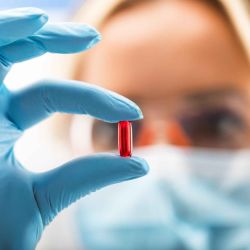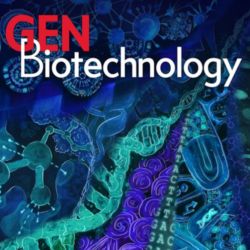Share

GEN Podcasts
Interrogating the Links between Genetics and Psychiatric Disorders with High Throughput Assays
•
More episodes
View all episodes


1. Breathing Oxygen Back into the Biological Conversation
19:24As good scientific investigators, we strive to make our research more reproducible, repeatable, and translatable. These traits are ostensibly engrained in researchers from the start of their careers but often fall to the wayside in pursuit of experimental answers. Throughout this three-episode podcast series, sponsored by The Baker Company, we will weave the common thread of these essential research traits and discuss some ubiquitous techniques common to so many laboratories—focusing on areas that are often overlooked but can have a considerable impact on recapitulating physiological conditions and the efficacy of your experiments. So tune in to this first podcast where we discuss the importance of oxygen biology in common lab experiments.
Global Single-Use Network Supports Assurance of Supply
27:28Single-use systems have been steadily climbing toward the top of the tools utilized by biomanufacturers for the commercial-scale production of critical therapeutic products. However, COVID-19 created an inflection point for this technology, generating an even greater demand that will shape the market for many years. Yet, with considerable demand comes the need to focus on the key aspects driving growth while discovering the appropriate solutions to the challenges that invariably arise when technologies are being developed and utilized rapidly.This is our third and final episode of GENcast, where Dr. Ger Brophy, the Executive Vice President of Biopharma Production at Avantor, joins me. We sat down to discuss several essential facets of single-use systems and some ways to help manage risk and decrease the intricacies most often associated with single-use supply chains. Make sure you check out episode one and episode two for more in-depth discussions with Dr. Brophy.
Resins Address Downstream Purification Concerns
20:07The demand for safe and efficacious biologics has accelerated exponentially in the past several years due to the tremendous success of some of the initial therapeutic offerings in this space. Yet, along with this increased demand comes the need for innovative solutions to improve downstream production workflows. For example, eliminating purification bottlenecks and improving overall yields from chromatography steps can significantly impact the final product’s cost.In this second episode of GENcast with Executive Vice President of Biopharma Production at Avantor, Dr. Ger Brophy, we dive into some of the challenges biomanufacturers face during downstream purification and how addressing the traditional thinking surrounding chromatography resins, and buffers can be highly advantageous and immensely cost-effective. Take a listen to episode 2 below, and if you want to check out episode 1, click here!
Materials Sourcing: Precautions and Improvements for Cell and Gene Therapies
21:21The success and applications of cell and gene therapies are seemingly limitless, and economic forecasts project a compound annual growth rate of almost 40% over the next eight years. This rapid expansion is a double edge sword for biomanufacturers of cell and gene therapy products. On the one hand, the tremendous growth is excellent for business. Yet, on the flip side, biomanufacturers are faced with solving the numerous challenges of scaling-up production workflows: from raw material sourcing to supply chain management to adopting new and innovative production modalities. Having a trusted global partner that can help organizations navigate the tumultuous bioprocessing waters of cell and gene therapy production is advantageous and often the key to continued success in the space.In this GENcast, we sit down with the Executive Vice President of Biopharma Production at Avantor, Dr. Ger Brophy, to discuss some of the precautions and improvements for cell and gene therapies and how manufacturers can address many of the challenges they face. Take a listen!
Mechanistic Modeling Improves Drug Discovery Workflows and Speeds Therapeutic Development
23:06This is the final episode in our three-part GENcast series, where we discuss the virtues of mechanistic modeling and how it can significantly impact critical decision-making points in the drug discovery process, especially as drug developers move closer toward the IND process. In our two previous podcasts, we were introduced to mechanistic modeling concepts and the basics of how they can be applied to drug discovery workflows. You can listen to the earlier podcasts with the following links: episode 1, episode 2. In this latest GENcast, I met up once again with Dr. John Burke, President, CEO, and Co-founder of Applied BioMath, to discuss the specific applications of mechanistic modeling, especially concerning the process of deciding the first human dose numbers, and how his company is helping biotech and pharma organizations reduce their late-stage drug attrition rates. Take a listen!
Moving the Drug Pipeline Forward with Mechanistic Modeling
25:46This is part two in our three-part GENcast series, where we discuss various aspects of the drug discovery and development process and, in particular, how advanced computational techniques like mechanistic modeling can help advance the therapeutic drug pipeline for many developers. In our initial podcast, we were introduced to mechanistic modeling concepts and the basics of how they can be applied to drug discovery workflows. In this latest GENcast, I sat down once again with Dr. John Burke, President, CEO, and Co-founder of Applied BioMath, to take a deeper dive into the specific applications of mechanistic modeling and how his company is helping biotech and pharma organizations reduce their late-stage drug attrition rates. Take a listen!
Reducing Drug Discovery and Development Risk with Mechanistic Modeling
40:02The drug discovery and development process can be an arduous endeavor. Manufacturers spend considerable resources and money chasing down potential candidate molecules to create a potential new therapeutic—often resulting in abandoning the candidate in the very later stages of development due to minor factors that might have been overlooked at the onset of the discovery process. Thankfully, there have always been those investigators who sought to merge the fields of mathematics and biology while taking advantage of advanced computing algorithms to help inform and de-risk drug discovery decisions and streamline the development pipeline. This mechanistic modeling approach is helping to transform drug R&D projects by giving pharma and biotech companies the vital information they need to make the critical decisions in a drug’s path toward clinical success.In this GENcast, we sat down with an expert in mechanistic modeling to discuss the specific of this approach and how companies are employing the technology successfully. Jump into the discussion and take a listen!
Meet the Editor-in-Chief of GEN Biotechnology: Hana El-Samad, PhD
42:44GEN Biotechnology is the new peer-reviewed journal launching in early 2022 by Mary Ann Liebert Inc. aiming to publish outstanding original research and perspectives across the biotech field. In this Q&A, GEN Biotechnology Senior Editor, Fay Lin, PhD, interviews Editor-in-Chief, Hana El-Samad, PhD, about her scientific research, outreach, and vision for the journal. Learn more about GEN Biotechnology: Website: www.genbiotechjournal.comTwitter: @GENBiotechJrnlSend editorial inquiries to editor@genbiotechjournal.com